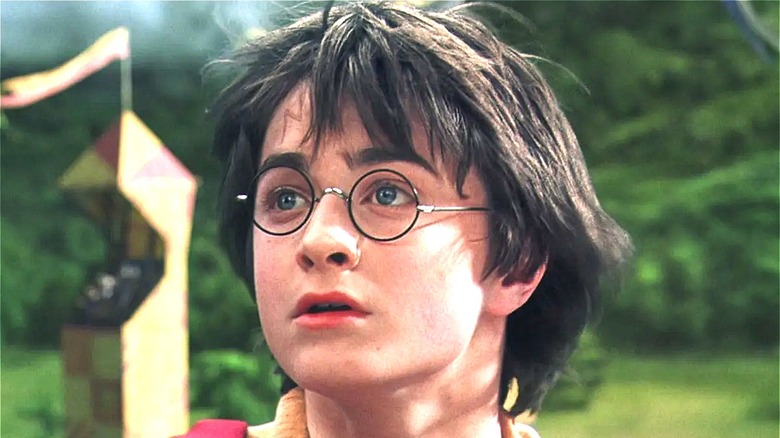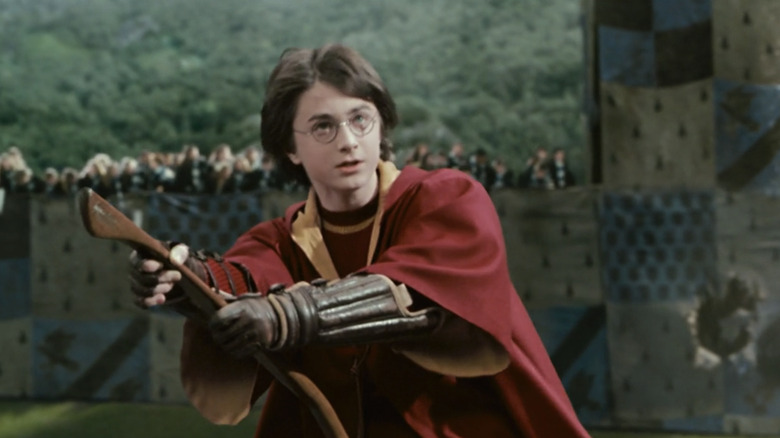Why The Quidditch Scoring System In Harry Potter Means More Than You Think
Ask any die-hard "Harry Potter" fan to explain the rules of Quidditch to you, and it's more than likely they'll talk your ear off for a good 10 minutes trying to explain it fully. The essentials of the games are as follows: Two teams of seven players (three Chasers, two Beaters, one Seeker, and one Keeper) fly around on broomsticks while trying to score points through two sets of three hoops on either end of the field. The Chasers attempt to get past the Keeper and toss the Quaffle through said hoops for 10 points apiece while dodging a pair of Bludgers (black balls with a penchant for violence about the size of a volleyball) being flung at them by the Beaters. The Seeker spends the whole match searching for the Golden Snitch, and if they catch it, they earn their team an additional 150 points and end the game.
Easy enough, right? Now ask them how on Earth those rules make any sense — and watch them struggle to come up with a convincing answer. Unless one team is at least 15 goals ahead, the entire game really hinges on which team catches the Snitch first. In fact, it would be much more beneficial for half of the team to stop playing altogether and just help the Seeker look for it. At first glance, this convoluted system of scoring seems to be completely unnecessary — but author J.K. Rowling insists that there's more to it than meets the eye.
Rowling claims Quidditch represents the struggles of life itself
In a 2018 tweet, Rowling asserted that the game of Quidditch is more than just a sport: It's a representation of life itself. "There's glamour in chasing an elusive lucky break, but teamwork and persistence can still win the day," Rowling explained. "Everyone's vulnerable to blows of fate and obstructive people, and success means rising above them. Quidditch is the human condition."
Saying that the scoring system for her fantastical wizarding sport is actually a metaphor for life's struggles is certainly one of the bolder claims that Rowling has made (though it's important to point out that she has a history of revising things or giving readers new information well after the book series ended back in 2007).
That said, it's definitely an interesting interpretation as to how the game of Quidditch is constructed — though perhaps it's more likely that Quidditch was designed in a way that always made Harry (the Gryffindor Seeker) the center of attention, no matter what the rest of the team was up to. Whatever the case, it's worthwhile to consider the metaphor behind the madness the next time you reread the books or binge the movies.

